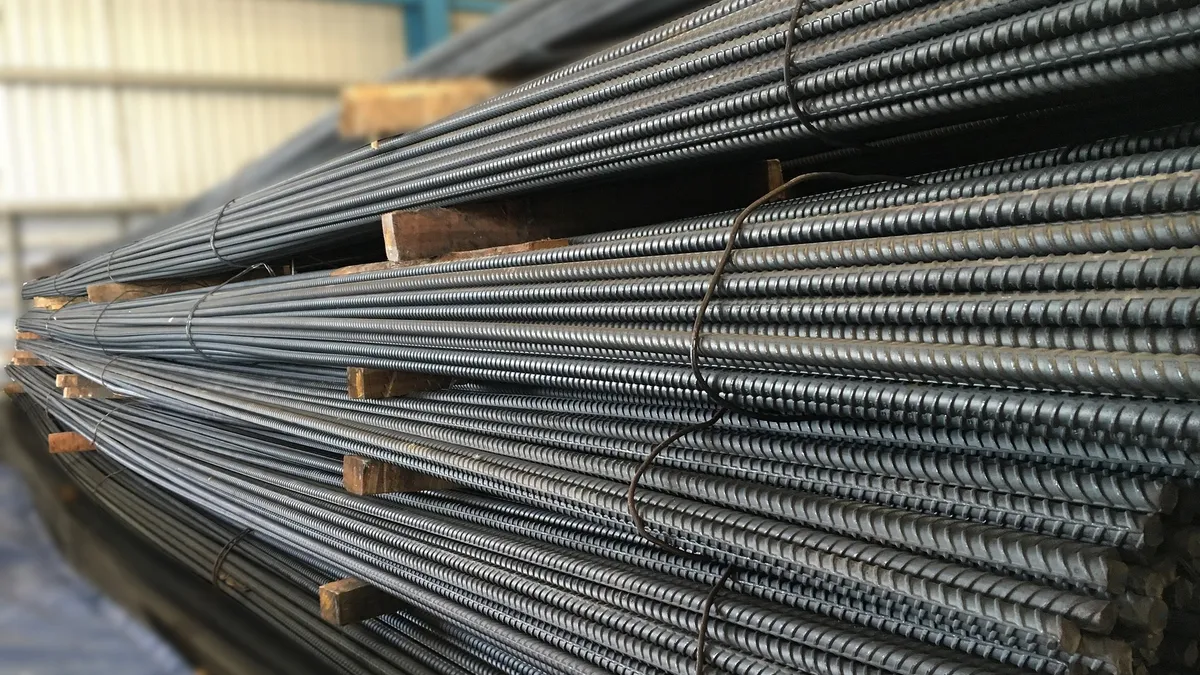Dive Brief:
- The Trump administration agreed on Friday to lift its tariffs on industrial metals from Mexico and Canada in exchange for the adoption of new monitoring and enforcement measures to prevent Chinese steel from being shipped to the U.S. The U.S. tariffs on steel and aluminum, imposed in March 2018, were lifted over the weekend, the Washington Post reported.
- Trade groups, including the Association of General Contractors, reacted positively to the news, saying that the move is a positive step both for the construction industry and the economy at large. "Contractors will no longer have to worry about being hit with steep price increases for materials after they have committed to deliver a project at a fixed price," said AGC Chief Economist Ken Simonson. "The thousands of business that use steel, aluminum and the products that contain them will once again be more competitive in world markets and will not face retaliation from Canada or Mexico against their exports. That relief, in turn, should boost demand for structures serving export-related manufacturers, distribution and transportation facilities."
- The deal clears a major obstacle to congressional passage of President Donald Trump’s new North American trade agreement. Simonson said future trade deals would benefit U.S. construction firms. "Infrastructure, as well as other types of construction, will be more affordable and predictable in cost if these trade barriers are removed," he said.
Dive Insight:
The Trump administration has long blamed Chinese overproduction of steel and aluminum for depressing global prices, saying that it drives many U.S. mills out of business. Citing national security, Trump last year imposed a global 25% tariff on steel imports and a 10% tariff on aluminum tariffs.
Though the tariffs were lauded by U.S. steel workers, the move was concerning to construction industry officials who worried about rising materials prices and a loss of construction jobs. U.S. manufacturers and other industry groups have said tariffs hurt those who manufacture construction and other types of equipment and that more than 1 million jobs are at stake, according to the Association of Equipment Manufacturers last year. While the Canadian and Mexican tariffs' impact negatively affected American businesses, according to Bloomberg, the effect of lifting them is yet to be seen.
This includes the construction industry, as some developers delayed their capital programs because of uncertainty around the impact of the tariffs. This is especially true for those who source material from abroad.
The uncertainty surrounding international trade is far from over for U.S. manufacturers. On Friday, the Trump administration also announced it would delay tariffs on imports of cars and auto parts from Europe, Japan and other countries.














